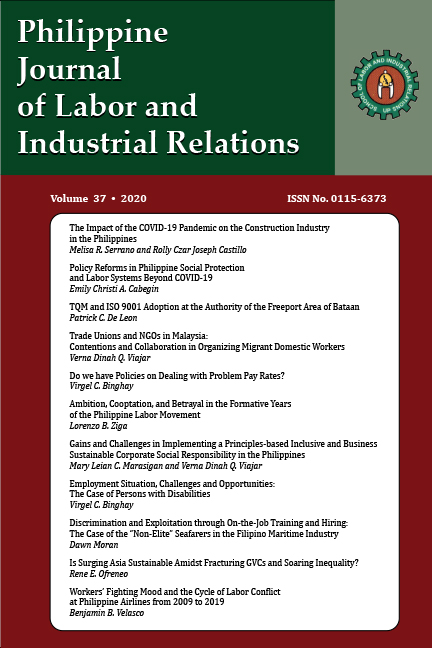Workers’ Fighting Mood and the Cycle of Labor Conflict at Philippine Airlines from 2009 to 2019
Abstract
The outsourcing dispute between Philippine Airlines (PAL) and the union Philippine Airlines Employees Association (PALEA) has arguably played a part in the workers’ unrest over endo under the administration of President Rodrigo Duterte. Thus the relevance of looking back at the dynamics and development of the PAL-PALEA labor row to understand its connection to today’s wave of strikes. Using concepts from institutionalism and Marxism as lenses to investigate the PAL-PALEA dispute reveals key lessons. From 2009 to 2019, the PALEA struggle had gone through one complete cycle of revival then decline of militancy. The fighting mood of workers is a wellspring from which labor unions draw their strength, which, for PALEA, led to the partial victory of a settlement agreement. But the workers’ fighting mood is conditioned by the outcomes of the interactions of actors within the labor market and larger society. In the
case of PALEA’s fight against outsourcing, there were key institutional barriers that prevented total victory. The study concludes that the fighting mood of workers ebbs and flows. It revives on the basis of unresolved grievances and correct tactics but defeats lead to the decline of militancy and the return of factionalism.


